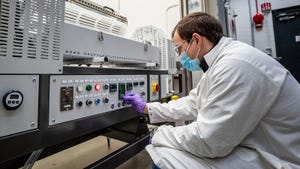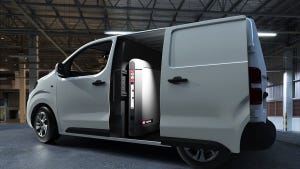Energy Storage Startups Impacted by Silicon Valley Bank Collapse
The fallout from the largest bank failure since 2008 will hit clean energy startups particularly hard.

When Silicon Valley Bank of Santa Clara, CA, fell last Friday, it threatened to drag down hundreds of young clean-energy technology companies with it. The bank had a a dedicated cleantech-focused arm in place for roughly 15 years. According to its web site, SVB issued billions in loans to more than 1,550 companies involved in battery storage, hydrogen, and solar projects. “We serve those creating positive environmental change,” the SVB web page trumpets. “From alternative energy solutions to agricultural breakthroughs, we support individuals and businesses driving toward a healthier planet.”
“A little over a year ago SVB had even committed $5 billion in loans and investments specifically towards sustainability efforts,” noted Neo Financial VP Mark Le Dain in a bylined Forbes article. “For comparison, larger public banks had committed amounts in the hundreds of millions. If you were a builder in cleantech you liked everything they were doing, but you now find yourself unable to access your funds.”
A different kind of clientele
Those 1,500 SVB loan-recipient companies include home solar, battery storage, and energy services company Sunrun Inc.; wind, solar, and energy-storage developer Longroad Energy; sustainable infrastructure and distributed generation resource developer Daroga Power; fuel-cell based generator maker Bloom Energy; and iron flow battery developer ESS—all of which are featured as success-story case-studies on SVB’s web site.
It’s worth distinguishing between all of the renewable-energy startups and other categories of startups. The other big bank failure this week was Signature Bank, an institution noted for its heavy exposure in the crypto currency industry, for example. Both banks had hopeful clients in other new-technology areas, trying to leverage an innovation to take off in the market: That’s what startups and their supporters do, of course.
But clean-energy startups do more than try to succeed as businesses—they play an important role in the clean-energy transition that is crucial to combatting the threat of climate change.
“The devastation comes at a critical moment for a nascent industry that is central to the effort to cut the greenhouse gases dangerously heating the planet,” writes David Gelles in the New York Times. “The federal government depends on climate tech companies to develop the innovations needed, and has promised billions in tax breaks to help them grow and mature.”
In the same article, Sarah Sclarsic, managing partner at venture capital firm Voyager, notes, “This isn’t folks in Silicon Valley building photo-sharing apps. These are folks across the whole country, in Detroit and Texas and everywhere in between, building things that matter.”
Enter FDIC—but what about future credit?
By Monday, the Federal Deposit Insurance Corporation (FDIC) announced it had transferred all assets of SVB to an FDIC-operated ‘bridge bank’ in an action designed to protect all depositors of Silicon Valley Bank. “Depositors will have full access to their money beginning this morning, when Silicon Valley Bridge Bank, N.A., the bridge bank, opens and resumes normal banking hours and activities, including online banking.”
That should take care of these startups' immediate concerns regarding meeting their payrolls and other obligations. But as Le Dain in Forbes points out, “Even in instances where deposits are made whole, the credit facilities for companies with SVB are likely no longer available, and this is a sector where those are critical. Cleantech companies experience the valley of death where prototypes are being refined but there is no revenue growth yet.”
Battery Technology will continue following this story.
About the Author(s)
You May Also Like





